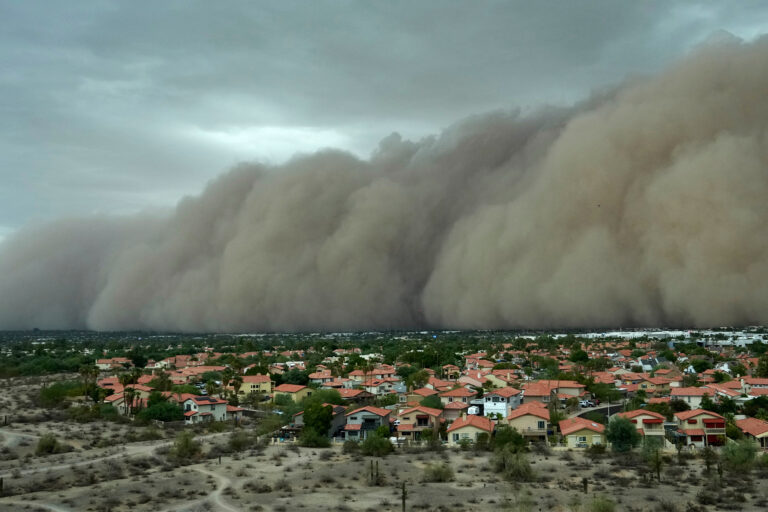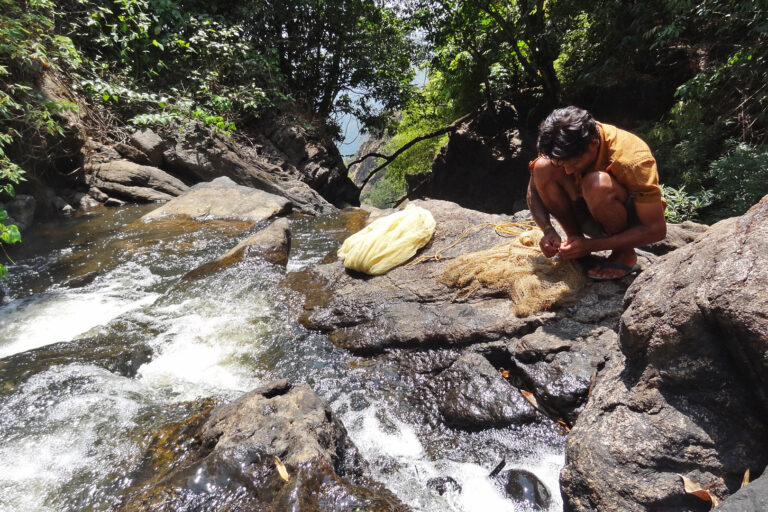- A land reclamation project in the central Philippines spanning 174 hectares (430 acres) faces strong opposition from various organizations and civil society groups.
- The $456 million “smart city” project is a joint venture between Dumaguete City and E.M. Cuerpo, a local construction firm.
- While the project promises economic benefits, critics say these will be negated by its environmental impact, which includes covering 85% of Dumaguete City’s coastline and burying four marine protected areas.
- Critics also say the project has ignored the public consultation process, a requirement for a venture of this scale in the Philippines.
DUMAGUETE CITY, Philippines — Local authorities in the central Philippines pushing ahead with a land reclamation project that will bury four marine reserves face strong opposition from scientists, fishers and others.
The Dumaguete City Council on July 7 granted Mayor Felipe Remollo the authority to enter into an agreement with E.M. Cuerpo, Inc. (EMC), the contractor for the 23 billion peso ($456 million) “smart city” complex, which will cover 174 hectares (430 acres).
Experts say any economic benefits from the project will pale in comparison to the “monumental ecological disaster” it poses. The reclamation bid is set to cover 85% of the city’s shoreline, approximately the size of 4,000 basketball courts, said marine scientist Rene Abesamis, adding it will be a death knell for the local coastal ecosystems.
Community opposition to the project has resulted in three petitions calling for it to be scrapped; one of them has gathered 20,000 electronic signatures and been submitted to the mayor’s office. Various groups, including the Catholic and Presbyterian churches, educational institutions, national environmental organizations, and scientists have come forward to oppose the project for environmental, economical, and legal reasons.

“These nearshore environment are habitats of the different life stages of snapper, bream, and grunt fishes,” Annadel Cabanban and Aileen Maypa, both from the IUCN’s specialist group for these three commercially valuable fish, said in a joint statement Aug. 2.
“All are united to object the 174-hectare island reclamation project that can likely result to the degradation [and the] elimination of mangrove forests, seagrass beds, coral reefs and the local extirpation (loss) of hundreds to thousands of associated fish and other marine species in the four marine protected areas of Dumaguete City and along the coast of Negros Oriental [province],” they said.
Economic boost
City officials have presented the reclamation project as an economic boost amid the pandemic-driven downturn. Mayor Remollo told the national press that the project is a “sustainable solution” to ease unemployment and address the high poverty rate in the province. In Dumaguete City itself, around 70% of the population is “poor,” the mayor said.
The planned “smart city” will boast a coastal wastewater treatment facility; shoreline, slope and water protection; esplanade; marina; ferry port; and space for a sports facility, hospital and a city administration hub. According to the draft joint venture agreement between the city and EMC, the contractor will own 51% of the reclaimed land 30 days after the contract has been signed.
The same document says the city will benefit from taxes and the creation of new commercial and industrial sites, ports, and other facilities that will improve employment opportunities.
“Without burdening the national government, this is [a] self-help sustainable project where we will be … inviting investors so much [that] we can tax them by way of real property tax, business tax,” Remollo said. “We share in the revenues of the ancillary businesses that the proponent or developer would be putting up in this project.”

Under the agreement, EMC, which also has interests in construction, steel fabrication and real estate development, would shoulder the total expense of the project, projected at 23 billion pesos. In 2019, EMC subcontracted the land reclamation component to Poly Changda Overseas Engineering Co., a Guangdong-based enterprise owned and run by the Chinese government.
Critics have raised doubts about EMC’s fiscal capacity: the company’s financial filings show its net assets amounted to just 1.4 billion pesos ($27.8 million) as of December 2020.
Burying coral reefs
Those opposed to the project say it will cause irreparable harm to the environment, especially marine life. Dumaguete City is a coastal university town with four marine protected areas (MPAs), all of which will be covered and buried once the reclamation activity begins.
In an open letter, former university presidents and scientists from Dumaguete-based Silliman University, one of the country’s leading centers for marine research, said the project will “directly destroy, literally bury, the few remaining coral reefs, seagrass, and soft-sediment ecosystems.”
Scientists expect “monumentally disastrous levels of destruction from direct and indirect impacts,” said marine biologist Jean Utzurrum. “Mangroves and seagrasses are both critical for carbon sequestration and act as nurseries for fishes. Coral reefs provide important habitat for many commercially important fishes and add to tourism value,” Utzurrum told Mongabay.


Based on a combination of satellite images and field surveys in 2020, marine conservation organization STEWARDS estimated the reclamation project will destroy 62.5% of seagrass, equivalent to 36.15 hectares (89.3 acres), and 60.58% of corals and reefs, or 36.2 hectares (89.5 acres).
This will directly impact 150 species of corals; 200 species of fish, including sharks and rays; nine species of seagrass; and 20 species of mangroves, the Philippine Association of Marine Sciences (PAMS) said.
More important, Utzurrum said, will be the significant losses of fish stocks in the region once the city’s four MPAs are removed, adding that the loss could drive food insecurity. “On a wider scope, we know from scientific studies that up to 60% of fish species in Dumaguete City are targeted by local fisheries and that locally managed MPA networks facilitate fish larval dispersal between islands,” Utzurrum said.
On top of destabilizing fish habitats and abundance, the project also threatens to displace the 994 fishers in the city who depend on the coastal ecosystem.
Vilio Piñero, a fisherman for 40 years, appeared in a documentary calling for the reclamation project to be abandoned. “If the reclamation pushes through, we fishers would be devastated,” he said in the local dialect. “We’d lose our source of livelihood. We’d have nothing. We fishers would be dead.”
The project could also exacerbate flooding in the city, said #NoTo174Dumaguete, a coalition of organizations opposing the project. They said that building an artificial island will disrupt “the natural flow of rivers and creeks,” and that the thin sliver of the city’s coasts and the island could become repositories of waste.

Lack of public consultation
The public outcry over the project comes from the lack of transparency and public consultation, groups say. To partially address this, the local government convened a series of information drives on July 23 and 24.
During the discussions, Mayor Remollo defended the project and attempted to assuage environmental concerns. “First, avoid. I will insist upon the developers to avoid the destruction of the environment,” he said. “Second, integrate … in your design. If you cannot avoid, integrate. If you are a good architect, you can integrate … you can place [corals] in an aquarium. Third, replace. If unavoidable, we can replace corals. [There is] a technology that replaces corals, replaces marine life.”
But community opposition to the project continues to solidify in Dumaguete City. Alliyah Zoobi, youth convenor of the #NoTo174Islands coalition, said they’re launching a youth coalition called Tapak6200 that will fight “for sustainable development for all through arts.”
On July 26, the City Council issued a resolution directing EMC to address the environmental issues raised regarding the land reclamation project. The matter has also garnered the attention of national politicians. Risa Hontiveros, a senator, has called for a Senate investigation into the “far-reaching implications of the project and its precedent-setting impacts.”

Correction: This article was updated Aug. 17 to clarify that Jean Utzurrum was not a signatory to the open letter from Silliman University faculty and on Aug. 18 to correct Dr. Aileen Maypa’s name.
Banner image of a man drying fish in the Philippines by Brian Evans via Flickr (CC BY-ND 2.0).
Related stories:
- Evidence that fish flourish in a community-managed marine area offers hope
- Philippines declares no new coal plants — but lets approved projects through
- With growing pressures, can the Philippines sustain its marine reserves?
FEEDBACK: Use this form to send a message to the author of this post. If you want to post a public comment, you can do that at the bottom of the page.














